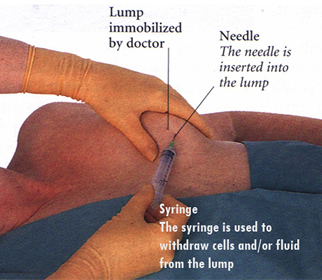What should I know about breast cancer?
- It is the most common cancer diagnosed in women.
- It is the major cause of death from cancers among women.
- It is the leading cause of a premature deaths (i.e. early death).
- 9 % of all cancers worldwide.
- 6 – 8 % of all cancer deaths.
Is breast cancer common in Malaysia?
Yes.
In Malaysia, it is estimated that about 31 women in every 100,000 population have this cancer as compared to 11 women in every 100,000 population having cancer of the colorectal (2nd most common cancer among females).
In a year, it is estimated that more than 3000 new cases diagnosed as breast cancer
Who is likely to get breast cancer?
- Breast cancer is more common in women
- after age of 40 years old for pre-menopausal women and after 50 years old for menopausal women
- have already had cancer in one breast;
- have a close relative, mother or sister, who has had breast cancer;
- never been pregnant or only had their first child after the age of 30;
- started having their menstrual periods at a young age (less than 12 years old) or have a late menopause (after 55 years old);
- have certain type of breast disease (e.g. proliferative breast disease);
- specific genetic susceptibility (such as carrier of BRCA1, BRCA2);
- are obese (BMI 27.5 and above);
- Exposure to high radiation
What are the symptoms of breast cancer?
If you experience the following conditions, please seek advice from your doctor or the nearest clinic:
- Painless lump
- in the breast or armpit
- Persistent rash
- around the nipple
- Bleeding or unusual discharge from the nipple
- Changes in the skin
- swollen and thickened
- dimpled
- puckering of skin over the break
- Nipple retracted or pulled into the breast
How to screen for breast cancer?
- Breast Self Exaamination (BSE)
- Clinical Breast Examination (CBE)
- Mammogram
- Ultrasound
- Magnetic Resonance Imaging (MRI)
What is Breast Self Examination (BSE)?
BSE is examining your own breast following certain steps.
It involves 5 steps:
 |
Step 1 – Look for any changes in the breast while standing in front of a mirror |
 |
Step 2 – Feel for changes while lying down |
 |
Step 3 – Look for bleeding or discharge from nipples |
 |
Step 4 – Feel for any lumps under the armpit |
 |
Step 5 – Repeat the same steps for the other breast |
How often should I do BSE?
- BSE should be done once a month (for those who are still menstruating). The best time is a week after the start of each period (day 7 – 10)
- For those who no longer have periods; remember a date and do it monthly (e.g. day 1 or last day of the month).
What should I do if I find something unusual?
If you find any signs described earlier, see your regular health care provider or doctor.
But don’t be afraid; most breast lumps are NOT cancerous.
E.g. Fibroadenoma.
Fibroadenoma :
Also known as breast mouse. It usually occurs in one breast in women in the younger age group. It is painless and very mobile. (This is why it is also known as mouse).
2. Clinical Breast Examination (CBE)
- This is an examination done by trained health care providers or doctors to check your breasts
- Women are advised to get a Clinical Breast Examination (CBE) done by health care providers on a yearly basis
3. Mammogram
- Mammogram is one of the tests used to detect changes in the breast tissues using specially designed low-dose x-ray machine.
- It is performed by compressing the breast between two plates. It may be uncomfortable / painful for a few minutes. It can measure the size and spread of cancer in the breast and can detect cancer in the other breast if present.
4. Ultrasound
- Ultrasound of the breast is done for women younger than 40 years old to screen for breast cancer
5. Magnetic Resonance Imaging (MRI)
- MRI is done for women at high risk of breast cancer
- Women at high risk of breast cancer are recommended to have mammogram and MRI done for breast cancer screening beginning at the age of 30 years old
What are the tests available to confirm the presence of breast cancer?
The following are tests performed if cancer is suspected :
- Blood tests
- Fine Needle Aspiration Cytology (FNAC)
- Core needle biopsy
- Ultrasound
- Mammography
What is FNAC?
A test that involves taking samples from suspicious lump using a syringe and a fine needle under sterile technique.
The samples taken will be sent to a laboratory for evaluation by a specialist.


What is Core Needle Biopsy?
A test that involves taking samples of breast lump tissue using a larger size needle. The sample is then sent to a laboratory for evaluation.
Do I still need to see a doctor if I don’t find anything?
Yes, we encourage those aged 30 years and above to get a Clinical Breast Examination (CBE) done by regular health care providers on a yearly basis.
What can I do to reduce the risk for breast cancer?
- Start doing BSE today.
- Do BSE regularly.
- Eat less fatty food especially animal fat.
- Take adequate amounts of vegetables, fruits and whole grains with fiber in diets.
- Do adequate exercise.
- Maintain ideal body weight.
- If any of your close family members had breast cancer, do mammogram early.
FAQs
What should I do if I have a family history of breast cancer?
Don’t be upset. If you are already practicing Breast Self Examination (BSE), continue to do so regularly. Practice healthy living, eat healthy diet and exercise regularly.
If your mother or sister had breast cancer, you can request for a mammogram. However, the accuracy of the result is best when you are 40 years and above
Can I seek complementary and alternative medicine for my breast cancer?
- Complementary and alternative medicine therapies are widely used by breast cancer patients in many parts of the world.
- Studies showed that nearly one-third of cancer patients used these therapies.
- Complementary therapies can be helpful in reducing the symptoms and enhancing quality of life.
- However, alternative medicine, can create direct interference to our body system or indirect harm, resulting in serious problems.
Here are examples of commonly practiced complementary therapies :
- Massage
- Relaxation methods
What is genetic testing in breast cancer?
Genetic testing is a blood test to determine if you have breast cancer gene.
Before undergoing such test, you will need to :
- attend intensive genetic counseling session;
- sign a consent form before participating in any genetic tests;
- outline your family pedigree.
Majority of breast cancer cases are not associated with a breast cancer gene. In addition, scientists do not know all of the genes that can cause this disease, so doctors can only test you for the known genes.
Presently, there are two genes found to have association with the development of breast cancer :
- BRCA1
- BRCA2
For many people, knowing their test results is important because this information may help to guide future health care decision for themselves and their families.
In Malaysia, this test is available only in certain institutes and universities
References
- Malaysian National Cancer Registry Report 2007
- Clinical Practice Guidelines – Management of breast cancer 2nd Edition 2010, Malaysia
| Last Reviewed | : | 28 August 2020 |
| Writer | : | Dr. Nor Filzatun Borhan |
| Reviewer | : | Dr. Nor Faizah bt. Ghazali |







